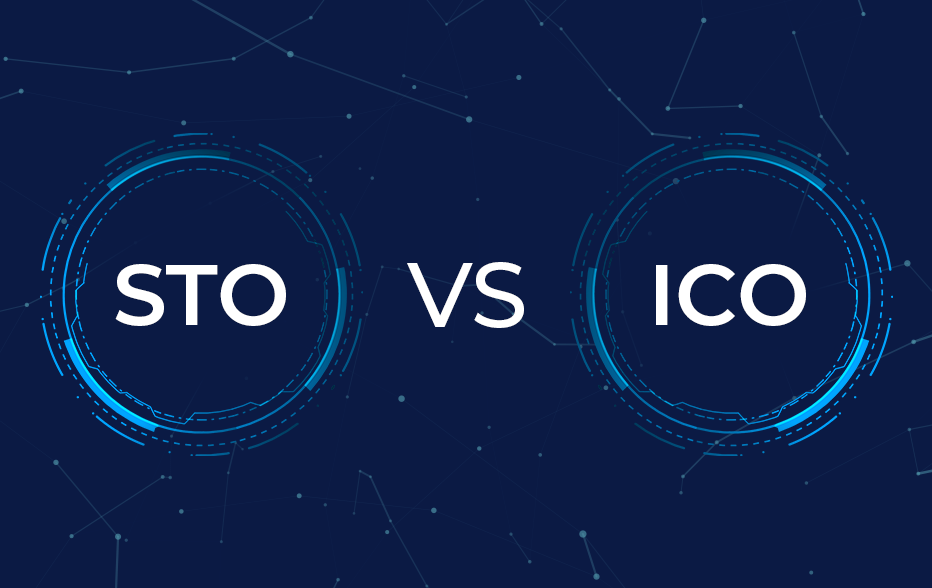Top Crypto Wallets 2024
Meta description: Are you looking for the best crypto wallets for your crypto assets? In this guide, we recommend the best crypto wallets to use in 2024.

Your crypto wallet is one of the essential things you need in the crypto space. They are designed to protect the keys that give you control over your assets. For the most part, they act as the gateway to interacting with cryptocurrencies and the general Web3 ecosystem.
In this guide, we explain crypto wallets and the different types of wallets you should know. To help you navigate the complex world of crypto wallets, we have added our recommendations of the best crypto wallets for you.
What is a Crypto Wallet?
A crypto wallet is a hardware or software that stores private and public keys to your digital assets while providing an easy-to-use interface to view and manage them. In addition to validating your account balance, crypto wallets also help facilitate cryptocurrency transactions.
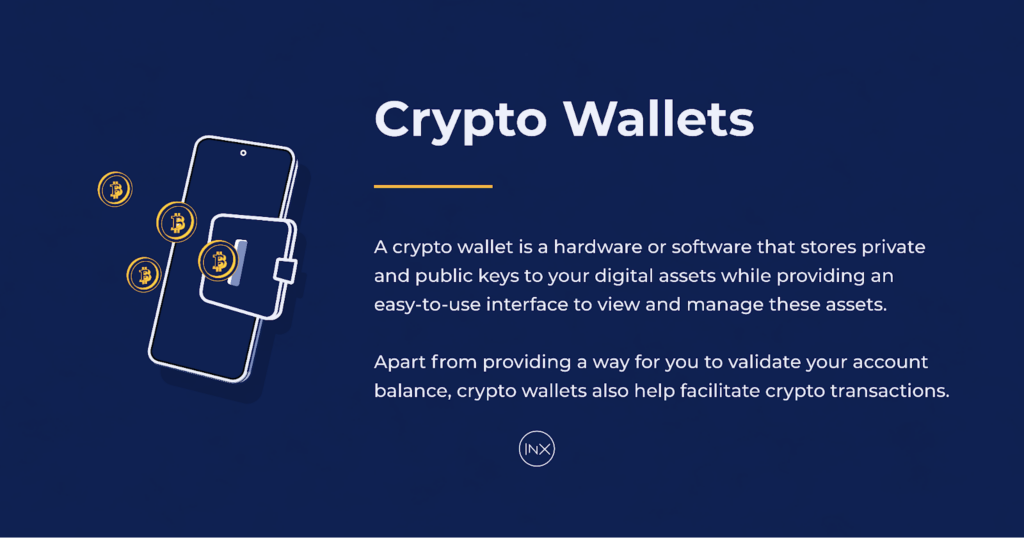
You need crypto wallets to interact with dapps (decentralized applications) and perform actions like staking and providing liquidity. In simple terms, your crypto wallet is like a gateway to accessing the whole web3 ecosystem, like a control panel that allows you to communicate with a blockchain.
How do Crypto wallets work?
First, you should know that crypto wallets don’t actually store your crypto assets like a physical wallet. Instead, they store the private and public keys to a blockchain address.
Remember that cryptocurrencies are not physical (tangible) currencies you can touch or see; they exist as strings of codes on a blockchain. So, when you buy crypto, you don’t get actual cryptocurrencies; instead, you get private and public keys.
Private keys prove ownership of your crypto asset and gives you control over them. You can think of private keys as the password to your bank account, they give you access to your crypto. On the other hand, public keys work more like a bank account; you can share it with people to receive crypto into your account.
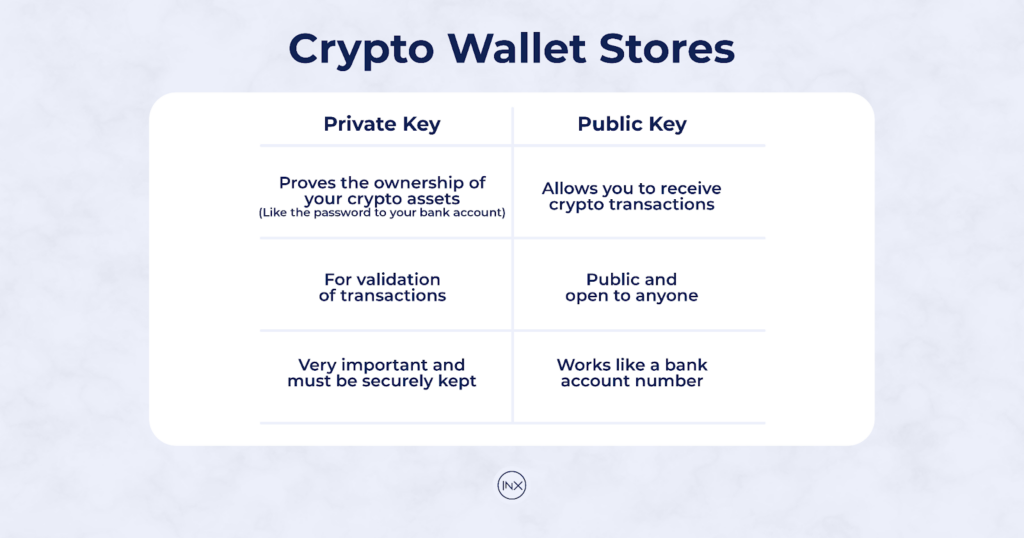
When you send crypto from your wallet, you sign the transaction with your private key to authenticate it before broadcasting it to the network. This proves you own the assets and want to transfer the specified amount to the stated address. The network then updates the balance of the sender and recipient to reflect the transaction.
Crypto wallets exist purely to store and protect your private keys while allowing you to access them easily. This makes it easier for you to send/receive crypto and track your balance. The security of your keys depends on the type of wallet you use. That said, there are different types of crypto wallets with varying security and ease of use.
Types of Crypto Wallets
Generally, there are two main categories of crypto wallets based on internet connectivity: hot wallets and cold wallets. This can be further classified into:
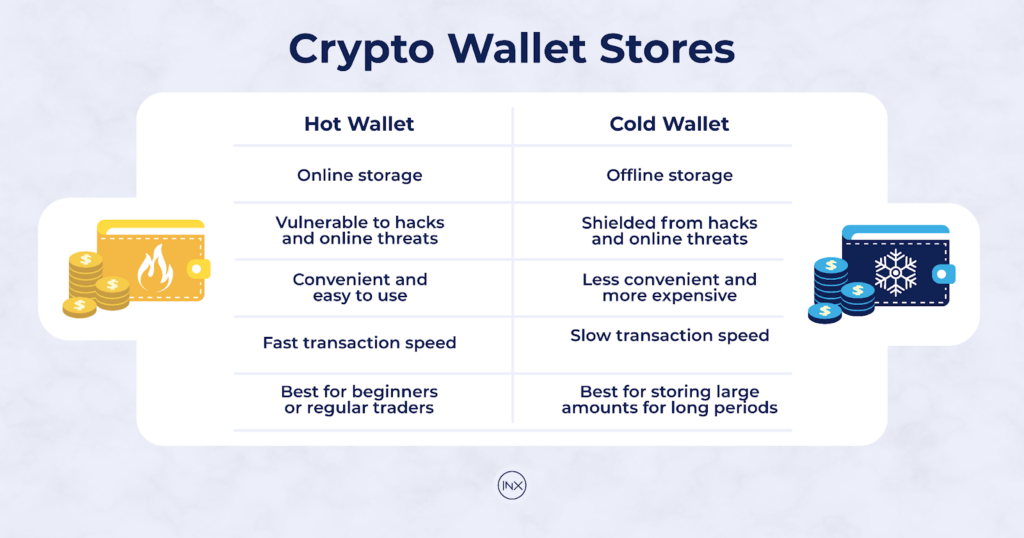
- Paper wallets are cold wallets that involve you writing or printing out your private keys in paper to store in a secure place. They are the safest way to store your keys because they are not prone to hacks. But they are not convenient and are prone to
- Hardware wallets are hardware devices that physically store your keys. They are usually USB devices you connect to your computer when interacting with your crypto wallet.
- Software wallets are desktop-based or mobile software that let you store your private keys on an internet-connected device. They are easy to use and convenient but are also the most prone to hacks.
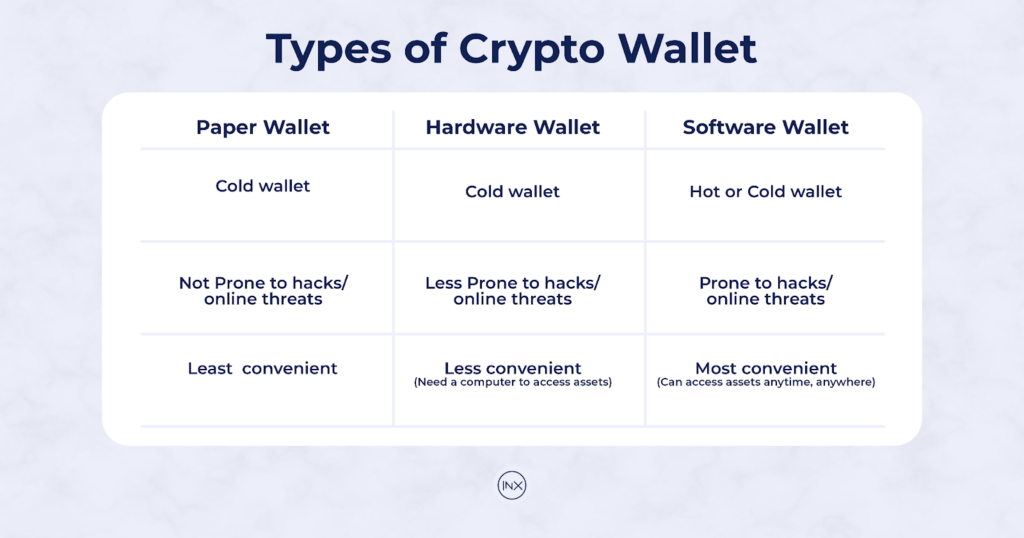
Crypto wallets can also be classified based on who stores the private keys into custodial (centralized) wallets and non-custodial wallets (decentralized wallets).
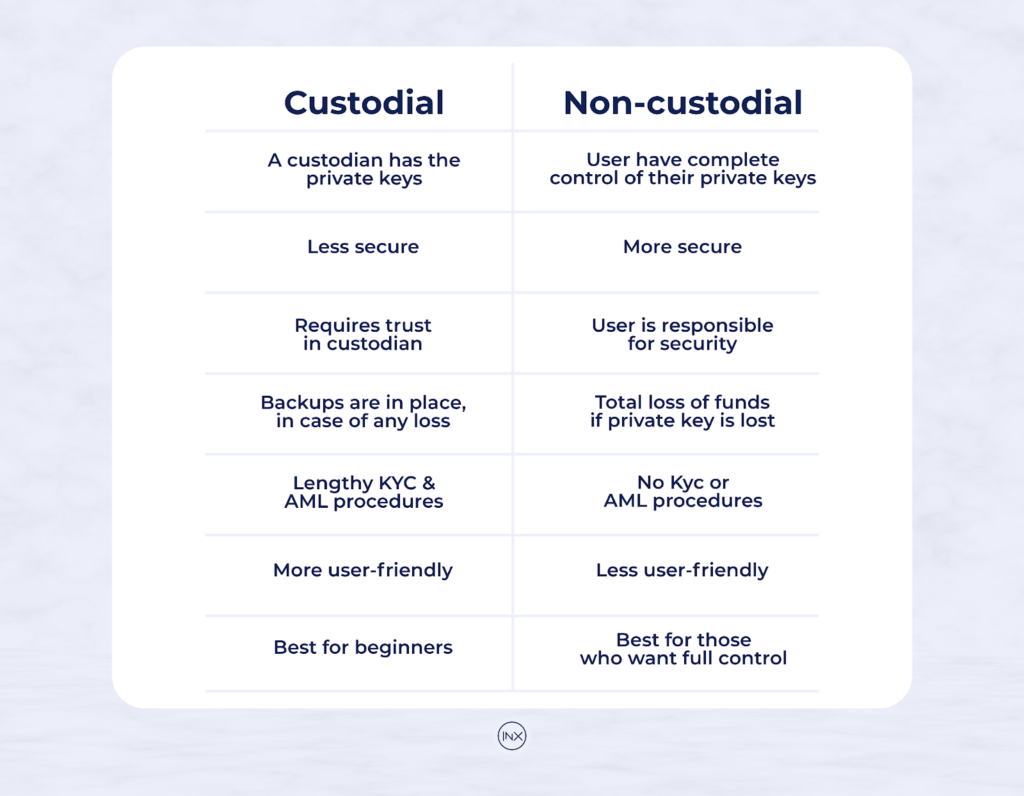
The Best Crypto Wallets for Beginners
If you’re just starting in crypto, you’re probably looking for easy-to-use crypto wallets. Here are the crypto wallets we recommend to ease you into the world of cryptocurrencies.
- Zengo: Perfect for beginners due to its intuitive interface and straightforward setup process. The best thing is that Zengo prioritizes simplicity without compromising on security. It uses the MPC (multi-party computation) technology instead of seed phrase to encode your keys. The 3FA features also ensure that your wallet is always recoverable, which makes it an excellent choice for crypto newbies.
- Coinbase Wallet: With seamless integration with the Coinbase exchange, users can easily buy, sell, and store a variety of cryptocurrencies. It is also user-friendly with an intuitive layout, making it a convenient choice for beginners.
- Exodus: offers easy navigation, supports a wide range of cryptocurrencies, and has a user-friendly interface that is great for beginners.
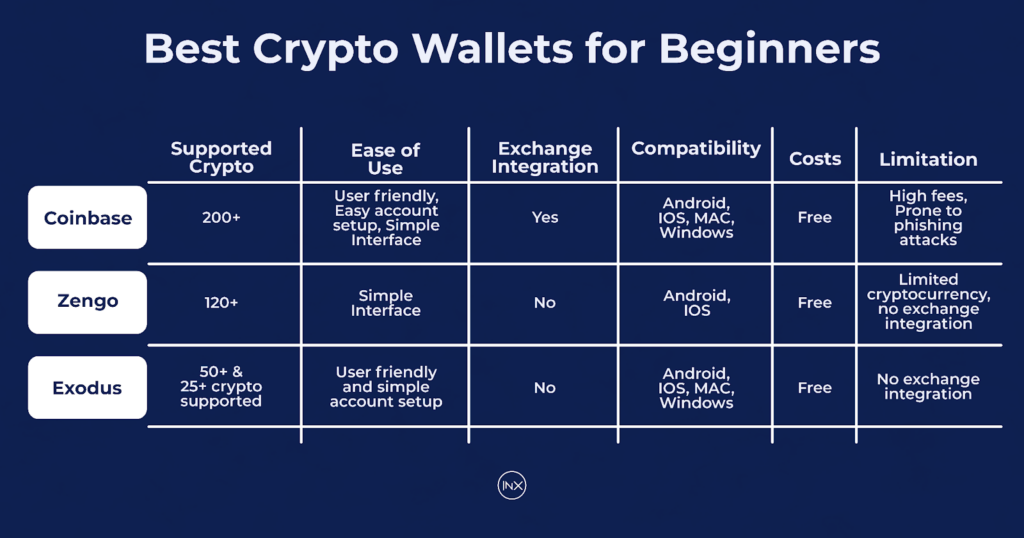
Best Browser Wallets
Browser crypto wallets are browser extensions or web-based software that allow you to interact seamlessly with dApps and the Web3 ecosystem. So, if you’re ready to dive into the exciting world of DApps, DEX, and DeFi platforms, here are our top recommendations.
- Metamask: allows users to manage Ethereum-based assets and interact with Ethereum DApps directly from their web browser. It also supports various Ethereum test networks and has a built-in decentralized exchange (DEX) feature for swapping tokens.
- Phantom: Phantom is designed specifically for the Solana blockchain ecosystem but also supports Ethereum and the Polygon network. The wallet offers a user-friendly interface and seamless integration with Solana-based DApps and DeFi platforms to provide features such as staking, token swaps, and NFT support.
- Magic Eden Wallet: tailored for users interested in non-fungible tokens (NFTs) and digital collectibles. It supports multiple blockchain networks, including Ethereum and Binance Smart Chain, allowing users to interact with NFT marketplaces and mint, buy, and sell NFTs directly from their browsers.
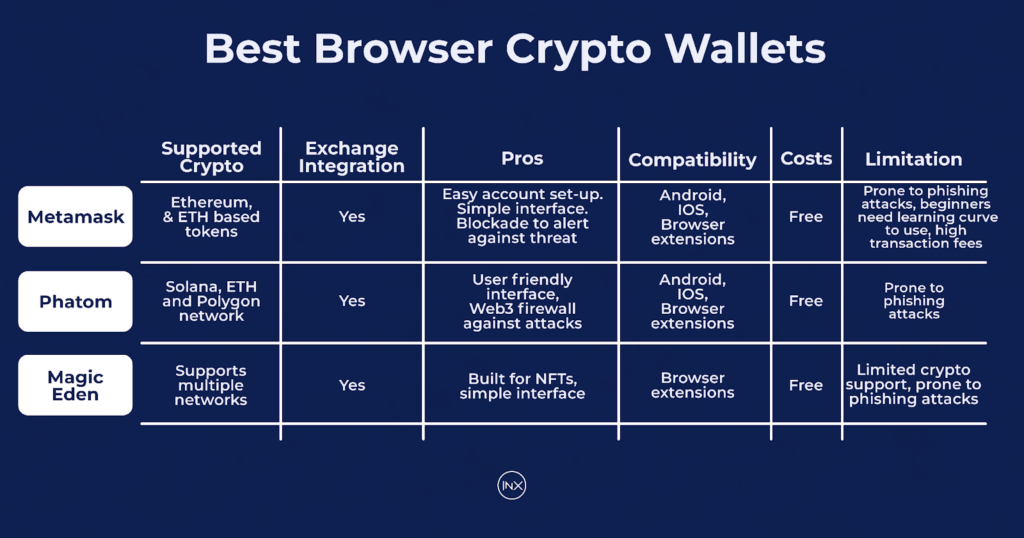
Best Hardware Wallet to Store Crypto Offline
Once you’re ready to increase your crypto assets’ security, hardware wallets are a necessary investment. As offline storage, they are less prone to malicious attacks and hacks and are better at storing larger amounts of cryptocurrencies.
- Trezor: Trezor wallets (Trezor Model T and Trezor One) are known for their strong security encryption and support for multiple security features, such as passphrase protection and two-factor authentication (2FA).
- Ledger: Ledger wallets ( Ledger Nano S and Ledger Nano X) provide secure offline storage for a wide range of cryptocurrencies, with features like PIN code protection, recovery seed phrases, and support for multiple cryptographic algorithms. Ledger Live, the companion software, enables users to manage their assets and install applications directly from their computers.
- BC-Vault: BC-Vault is a lesser-known but highly secure hardware wallet option. It distinguishes itself with features like encrypted backups, support for multiple cryptocurrencies, and a unique user interface designed to maximize security.
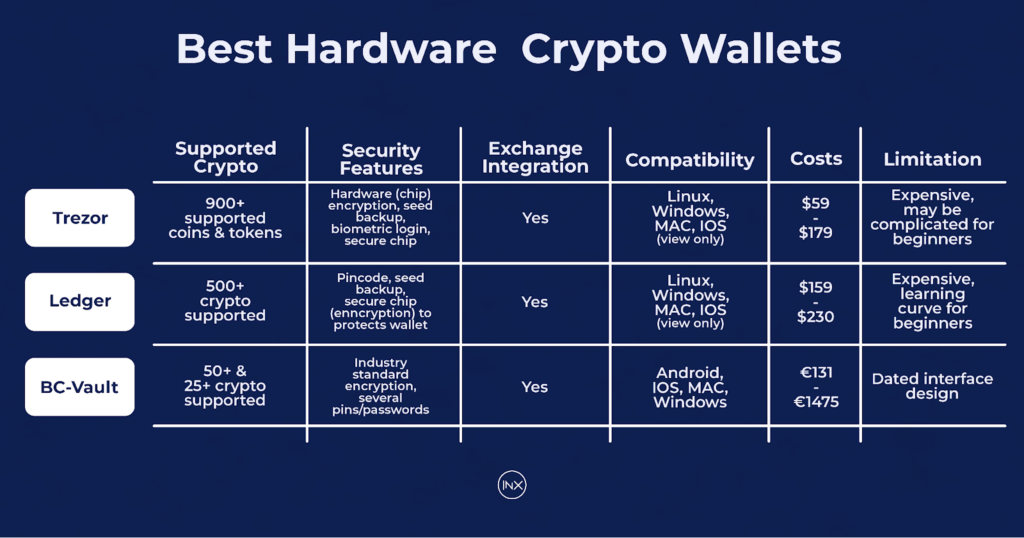
Top 3 Bitcoin-only Wallets
Bitcoin-only wallets support only Bitcoin and are great for users intending to hold Bitcoin for the long term. At this stage, you’re probably prioritizing the security over other features.
- Bitkey: Bitkey is a Bitcoin-only hardware wallet designed for users who prioritize security and simplicity. It offers offline storage of private keys, ensuring that your Bitcoin holdings remain safe from online threats.
- Coldcard: Coldcard is best known for its advanced security features. This Bitcoin-only wallet uses Airgap technology to offer users the option of using their hardware without being connected to a computer.
- Jade: Jade is an enterprise-level wallet that uses MPC (multi-party computation) to eliminate single point of failure. The wallet is also integrated with WalletConnect to facilitate quick connection with dApps.
Factors to Consider Before Choosing Your Crypto Wallet
Before selecting a crypto wallet, you want to be sure it meets your present needs. Some of the things to consider are:
- Security: What are the security features you want in your wallet? Cold or hot wallet?
- Supported Cryptocurrencies: Does the wallet offer all the crypto you plan to hold?
- Ease of Use: How easy is it to set up and use the wallet? Is there a learning curve?
- Back-up and recovery option: Do you have to store your private keys (non-custodial)? Is there an option to recover your fund in case of theft?
If you’re starting out with cryptocurrencies, you probably want to prioritize usability and convenience; wallets with a simple design like Zengo are a great idea. However, security is the most important thing to consider if you want to store your crypto assets for long-term investments. So, cold wallets with strong encryption like Bitkey and Coldcard are a better choice.
How to Secure Your Crypto Wallets from Malicious Attacks
Crypto wallets, especially hot wallets, are prone to online threats like phishing attacks and hacks designed to steal crypto assets. Therefore, you must be alert to protect your assets. The first rule, of course, is to keep your private key secret; anyone can access your crypto with your private keys.
Also, you want to avoid clicking on suspicious links or connecting your wallets to unverified sites. Attackers can gain access to your wallet through these links. Lastly, enable additional security encryption to secure your wallet against malicious attacks further. Check out our guide about how to avoid crypto scams for detailed explanation on how to safeguard your wallet.
FAQs
- What are crypto wallets?
A cryptocurrency wallet is a software program or hardware device that allows individuals to securely store, send, and receive digital currencies (cryptocurrencies) such as Bitcoin, Ethereum, and others. It consists of a pair of cryptographic keys: a public key (wallet address) for receiving funds and a private key for accessing and managing those funds.
- How do crypto wallets work?
Crypto wallets work by generating and storing pairs of cryptographic keys. The public key acts as an address where others can send cryptocurrencies, while the private key is used to access and authorize transactions associated with the wallet. When a user initiates a transaction, they sign it with their private key, which is then verified by the blockchain network.
- How can I open a crypto wallet?
Opening a crypto wallet typically involves downloading and installing wallet software or setting up a hardware wallet device. Software wallets can be downloaded from official websites or app stores, while hardware wallets require physical setup and configuration. During the setup process, users are usually prompted to generate a unique seed phrase or private key, which serves as a backup in case the wallet needs to be restored.
- What do I need a crypto wallet for?
Crypto wallets are essential to securely storing, sending, and receiving cryptocurrencies. You also need your wallet for cryptocurrency trading and investing on exchanges, plus interacting with decentralized finance (DeFi) platforms for lending, borrowing, and yield farming.
Lastly, crypto wallets act like your identity when engaging with decentralized applications (DApps) for gaming, decentralized exchanges (DEXs), decentralized social media, and other blockchain-based services.
The INX Digital Company INC May 16, 2024
The INX Digital Company inc. is an expert in the field of finance, crypto and digital securities.



